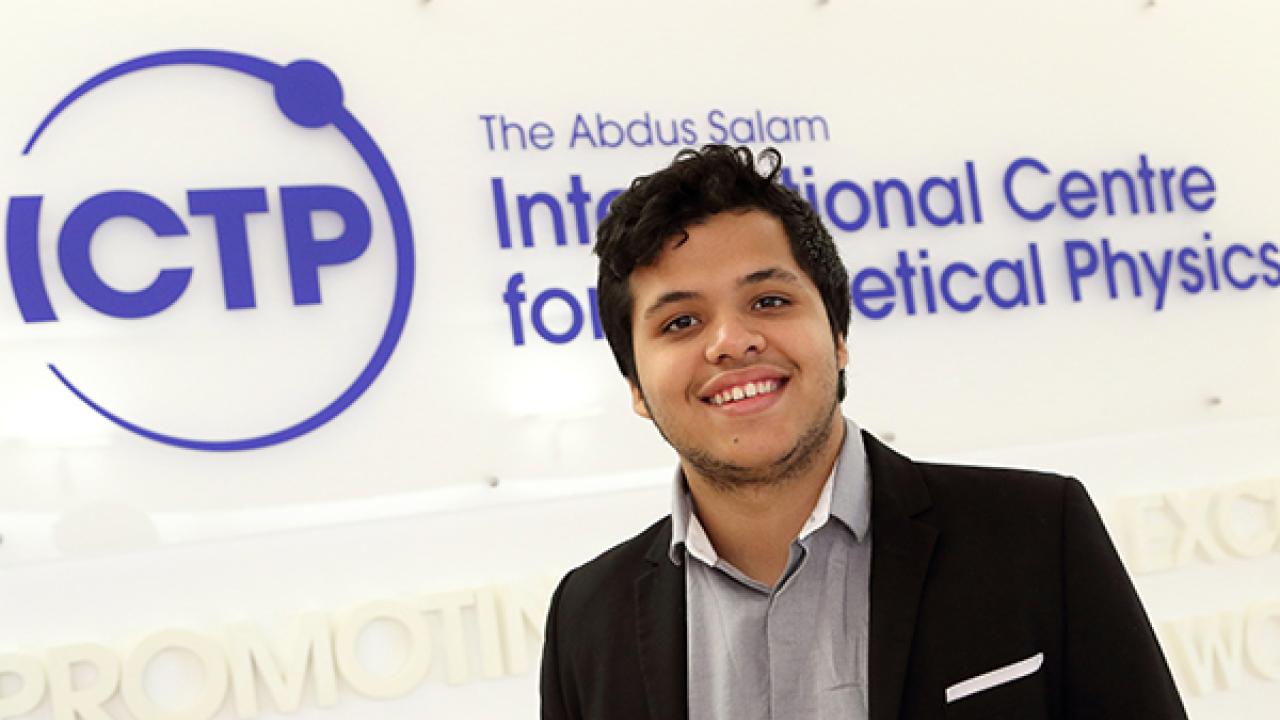
ICTP is renowned for its high quality research and scientific activities. Over the years, the Centre has attracted numerous Nobel Laureates and Fields Medallists (among many other prestigious prize winners) who enrich the fabric of the institute.
These high-level scientists inspire awe amongst the Centre’s thousands of visitors, but sometimes, too, do the ones who are not so well known, who may be in the infancy of what promises to be a stellar science career.
Such is the case of Danilo Perez Rivera, an ambitious young scientist from Puerto Rico who attended ICTP’s Winter School on Quantitative Systems Biology, held in December 2016. Like many of the other School attendees, Danilo is pursuing an interdisciplinary research agenda. His main interest is in computational science, applying his keen mathematical and analytical skills to quantify big science problems in areas ranging from astrochemistry to epidemiology to tissue patterning. “All of these fields really have been revolutionized by the computational advances we have, and the advances we’ve been making now at the turn of the 21st century,” explains Danilo, pointing to such areas as high-throughput computing and big data analysis. “It is really the usefulness of my skills in that area that calls my attention to it,” he says.
Danilo does not fit the standard profile of most ICTP visitors: unlike all of the other ICTP school participants, Danilo is not at the advanced stages of graduate studies, nor is he pursuing a postgraduate research agenda. Rather, he is completing his four-year bachelor’s degree and expects to graduate in May 2017. This makes him one of the youngest scientists to attend an ICTP activity.
“I was excited to be accepted to the ICTP school, even though I am still an undergraduate student,” he says, adding, “In Puerto Rico, these sorts of opportunities, especially for undergraduates, are few and far between. Theoretical physics and computational sciences are not readily discussed there.”
It was while he was searching for such opportunities that Danilo learned about ICTP as well as its partner institute in Brazil, the ICTP South American Institute for Fundamental Research, where he has also been accepted for an activity.
His success at gaining entrance to such prestigious research institutes has not gone unnoticed in Puerto Rico. The mayor of his hometown offered to pay part of his travel expenses to ICTP, and other financial support came from his university’s dean. Several of the island’s newspapers have published profiles about this up-and-coming science star, and Danilo welcomes the exposure it gives to science. He is a keen advocate of science outreach to the public. “Being able to motivate others to become interested in and understand the value of science is another one of my key interests,” he says. Danilo has participated in the regional edition of FameLab, an international science communication competition. He also coordinates an outreach program called “Math is more than numbers” for his university’s Math Circle, showing children that there are many career options open to people with quantitative skills, from finance to public health to other areas of science.
Danilo says that his visit to ICTP can be summed up in one word: amazing! “My visit will mark a pivotal moment of my career,” he says. Perhaps the most important lesson he learned during the two-week school came about not as the result of a lecture, but as a pearl of wisdom from a fellow participant during a meal in the ICTP cafeteria. As Danilo recounts, “I was sitting with an international group of graduate students and looked over to the right, and there’s a Nobel Prize winner (Eric Wieschaus, a lecturer at the ICTP school) playing the piano! He turned around and said to us, “As a scientist, it is a very dangerous strategy to become addicted to success.”
















